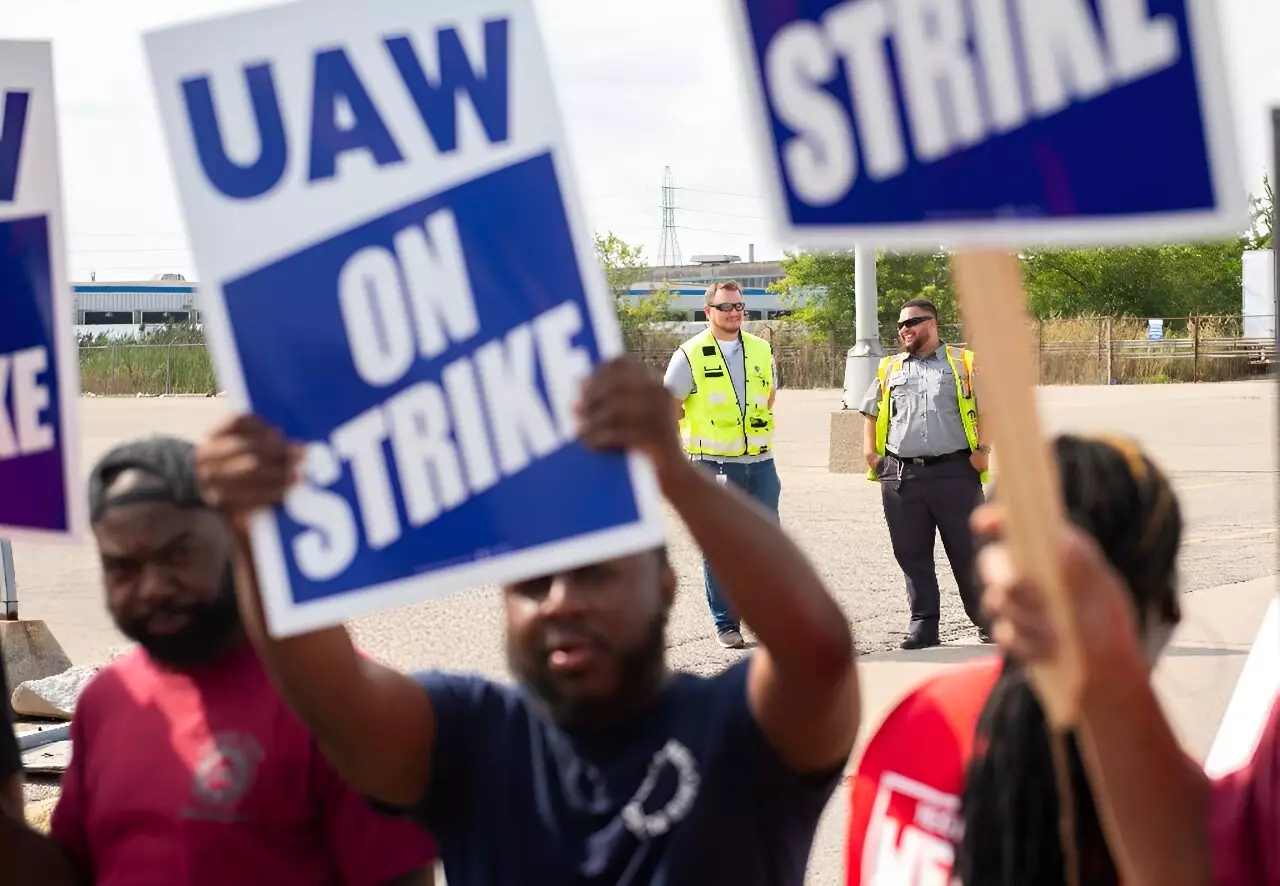The recent striking United Auto Workers (UAW) union and Stellantis have finally reached a preliminary agreement on a new labor contract, marking an important milestone in the ongoing battle between automotive giants and the American working class. After 44 days of strike action that targeted the “Big Three” automakers in Detroit, this tentative deal brings hope to thousands of workers who have been fighting for better wages and improved working conditions.
UAW President Shawn Fain proudly announced the successful conclusion of the negotiations, highlighting the accomplishments made through the strike. Fain emphasized that what was once deemed impossible is now a reality, signaling a turning point in the war on the American working class. The tentative contract includes a significant 25 percent raise in base wages by 2028, accompanied by cumulative cost-of-living adjustments that will ultimately result in a top wage of over $42 an hour.
Similar to the agreement reached with Ford earlier in the week, the preliminary agreement with Stellantis will undergo a ratification process through a vote by UAW members. In the meantime, striking Stellantis workers, like their counterparts at Ford, will be able to return to work and resume their operations. This temporary relief provides a sense of stability for the workers while the agreement goes through the necessary formalities. Mark Stewart, the COO of Stellantis North America, expressed gratitude towards the negotiating teams for their tireless efforts and looked forward to welcoming the employees back to work.
President Joe Biden, who had actively shown support for the striking workers by joining them on the picket line in Michigan, commended the UAW and Stellantis for reaching a historic agreement. He praised the tireless negotiations and acknowledged that this agreement guarantees workers the pay, benefits, dignity, and respect they deserve. This recognition from the President of the United States underscores the significance of the labor movement and the impact it has on shaping the country’s policies.
While the wage increase falls short of the 40 percent initially sought by Fain when the strike began, it is a significant improvement compared to Ford’s initial proposal of a nine percent increase. The 25 percent raise in base wages by 2028, coupled with cost-of-living adjustments, provides much-needed relief for workers and allows them to keep up with the rising cost of living. Furthermore, Stellantis has also committed to adding 5,000 jobs during the duration of the contract, effectively reversing the company’s earlier plans of job cuts. This commitment to job security is a positive step towards building a more stable and prosperous future for workers in the automotive industry.
Although the UAW has achieved significant milestones with both Ford and Stellantis, General Motors (GM) remains the only automaker without a tentative agreement. As the negotiations continue, workers at GM’s Spring Hill assembly plant in Tennessee have already commenced their strike, further highlighting the ongoing struggle for better conditions and fair treatment. The UAW’s strategy of gradually increasing the number of factories targeted by stoppages has proven effective in putting pressure on automakers to negotiate better terms. These efforts not only benefit the workers directly involved but also pave the way for improved conditions across the industry.
The Stellantis-UAW tentative agreement represents a significant victory for the American working class. Through months of relentless negotiations and strike action, the UAW has secured higher wages and increased job security for thousands of workers. While challenges still remain on the horizon, the progress made serves as a beacon of hope for the future. With the support of President Biden and a renewed sense of determination, the fight for fair treatment and better working conditions continues. The impact of this agreement goes beyond the automotive industry, reminding us of the power of collective action and the potential to create positive change for workers across the nation.


Leave a Reply